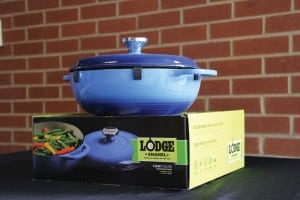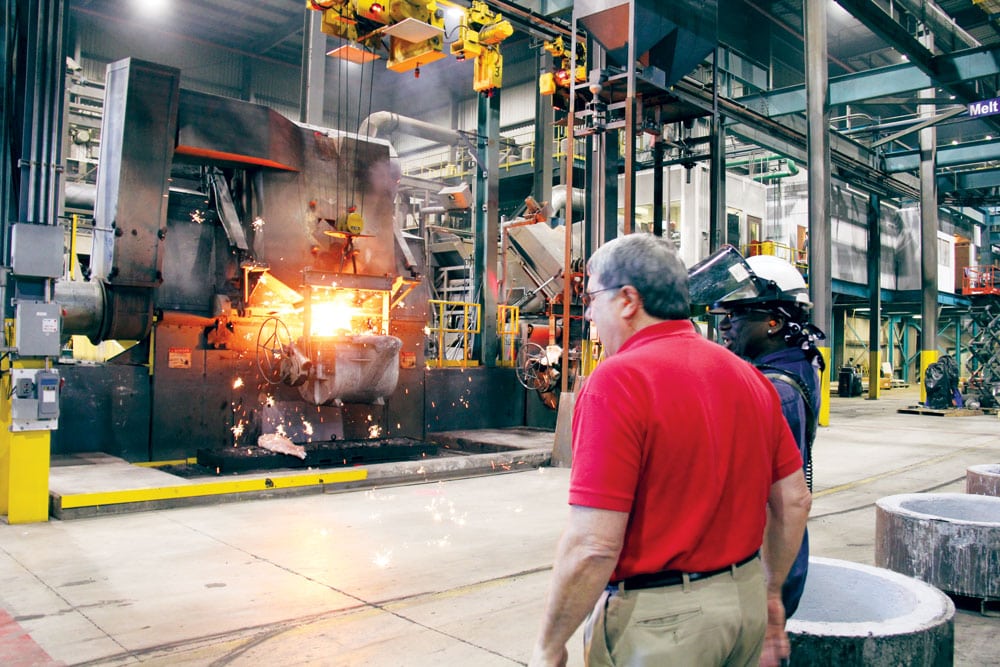By Claire Sellers, Duck River Electric Membership Corporation
“How’s your conduct?” This is a phrase you will hear quite often in the small town of Lynnville, located in Giles County. Col. Littleton himself uses this greeting often. The appropriate response is always: “Stellar.”
Col. Littleton is an American fashion designer and business owner. Best known for handmade, upscale leather goods and specialty products, Col. Littleton’s manufacturing center is in Lynnville.
After establishing his business in 1987, Col. Littleton today supplies more than 500 stores across the United States. His leather goods and other products are featured in catalogs such as Orvis and Sundance. Col. Littleton also works with other businesses to incorporate their logos and
brands on various leather products. Two storefront locations in downtown Lynnville are
open from 9:30 a.m. to 5 p.m. Tuesday through Saturday.
“We are in the process of moving our manufacturing down the road,” says Col. Littleton, an honorary colonel in Tennessee and Kentucky. This move means all of Col. Littleton’s products will be manufactured on the Duck River Electric Membership Corporation system. His workforce totals 40 employees.
“My goal is for our customers to have unique, one-of-a-kind products,” says Col. Littleton. “No two pieces are the same. Each piece of leather is different, and that’s what we want.”
Products are designed exclusively by Col. Littleton himself and made to have a vintage look and feel.
Different vintage military pieces are used as inspiration. Personalization is an option available to customers. Add customization to a knife or leather product to make it uniquely yours.
“We strive to be stellar in everything we do,” says Col. Littleton. “We aren’t in the needing business. We are in the wanting business. We strive to have stellar customer service and stellar products.”
An order from Col. Littleton includes a Moon Pie, an opportunity to review the product and a “How’s Your Conduct?” sticker.
“Each box that is shipped out will become a guest in someone’s home,” says the Colonel. “It’s all about
presentation. We care about the packaging as much as we care about the product that’s in the box.”
Customers of Col. Littleton include presidents, governors and numerous musical and Hollywood
celebrities. “I learn something new every day,” says employee Lynn Stevens. “I get to see the product when it’s still an idea.”
Each of Col. Littleton’s exclusively designed products is inspected seven to eight times before being packaged and shipped.
History is something that is important to Col. Littleton and his wife, Susie. The couple restored the Andrew Jackson Tavern and moved it to Lynnville from Belfast, Tenn. The tavern, which dates to the early 1800s, today serves as Col. Littleton’s office. An 1874 schoolhouse that has also been restored by Col. Littleton is used for company meetings.
Along with leather products, Col. Littleton has a CD featuring a collection of stories and music. Visit the store and browse through the truly remarkable leather goods inventory.
For more information, contact Col. Littleton at 1-800-842-4075 or visit colonellittleton.com.







